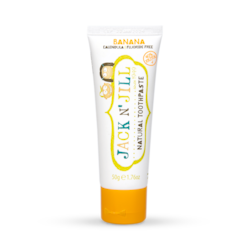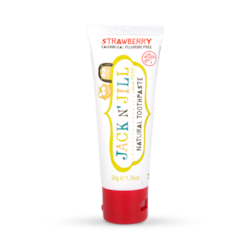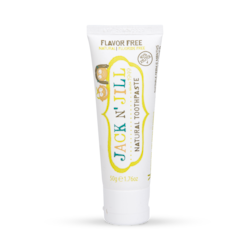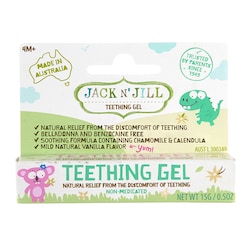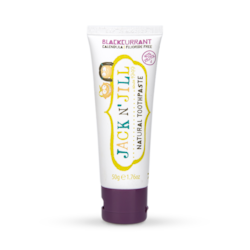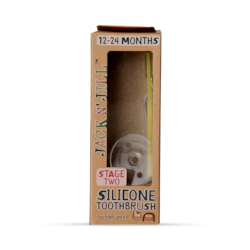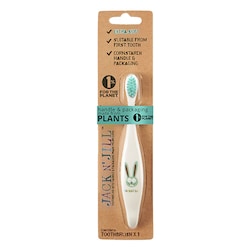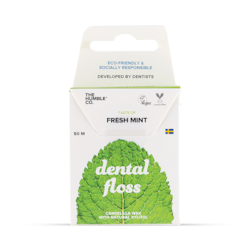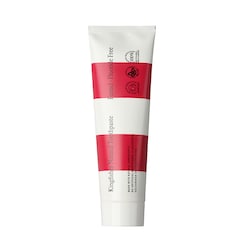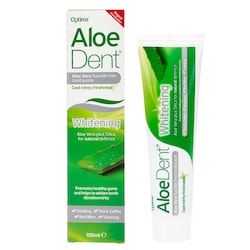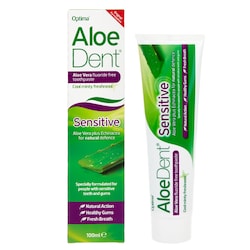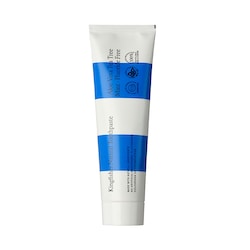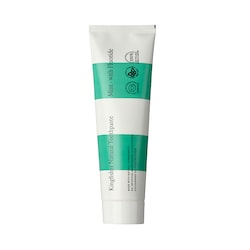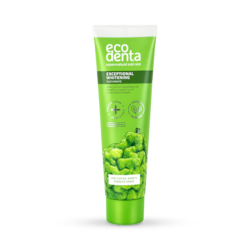15% off £30 OR 20% off £40
8 reasons for bad breath
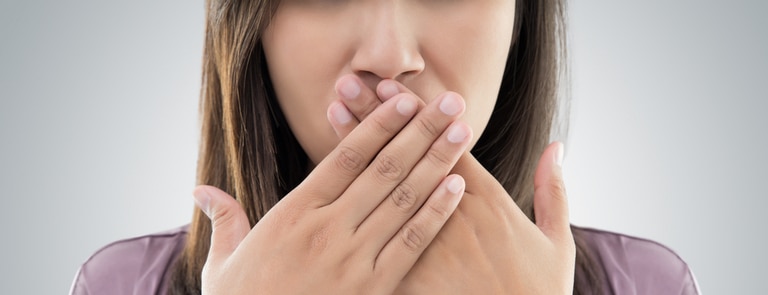
Whether it’s bad breath in the morning or a spicy meal that’s making you feel self-conscious enough to do the ‘breathe into your hands and sniff’ check, stinky breath is common. Now for many people, it’s an occasional issue that’s easily solved with a swill of mouthwash or by sucking on a mint. But if you find you’re reaching for your mints a little too often, you might be wondering what’s causing your breath to smell.
In this post, we discuss the top halitosis causes. And if you’re looking for a bad breath solution, we have a few ideas to help reduce your chronic reliance on mints.
What is halitosis?
It's medical speak for the unpleasant smell that carries on your breath and can be smelt by others when you speak or exhale. It’s common to worry about having foul-smelling breath. This is because the whiff, although easily detectable by others, can be difficult to recognise in yourself. As a result, often it’s hard to know when you have halitosis. In fact, the first time you realise you have it can be when someone else comments on it.
How to tell if you have bad breath
- Ask someone you trust (or a dental professional) for their opinion
- If you’ve eaten something with a potent smell and you can still taste it, it will probably smell on your breath
- If you have a dry mouth or feel dehydrated, you may notice a change in the taste in your mouth As a general rule, if you have an unpleasant taste in your mouth, your breath probably smells too
- A way to test for smells by yourself is to lick your wrist, allow it to dry briefly, and have a sniff
Summary
- Halitosis is common and something most of us worry about at some point
- It can be hard to know if your breath smells
- If you have a bad taste in your mouth, you may also have whiffy breath (particularly if you also feel dehydrated)
What causes bad breath even after brushing?
Food stuck between your teeth. The build-up of tartar and plaque. We're guessing you already know that if you don’t brush your teeth twice a day, bacteria will gather. And this is also likely to smell. So, here we’ll focus on a few less obvious halitosis causes.
1. Bad breath from stomach (or acid reflux bad breath)
What causes bad breath from the stomach? It happens when digestive problems encourage a build-up of bacteria in the mouth. For example, it can be prevalent amongst people with gastrointestinal disorders such as acid reflux.1 If you regularly suffer with heartburn and acid reflux, you may find the smells from the foods you’ve eaten can make their way back up the oesophagus and out of the mouth.
Reflux can also cause your mouth to become a more acidic place, creating an inviting environment for stinky bacteria to inhabit and thrive.2
2. Bad breath from throat
Is your halitosis accompanied by a sore throat? Sometimes halitosis can be a symptom of tonsilitis. This is caused by tonsil stones (or tonsilloliths.) These are gatherings of bacteria on the tonsils that tend to have an unpleasant aroma.3
3. Dry mouth bad breath
When there isn’t enough saliva in your mouth, it can cause bad breath. This is because a role of saliva is to flush bacteria, food and other debris out of the mouth. When there isn’t sufficient saliva to do this job, bacteria builds up and worsens halitosis.
A dry mouth can be caused by dehydration, certain medications and blocked salivary glands. It’s also common in the elderly. However, congestion or anything else that encourages breathing through the mouth could give you dry mouth bad breath.4
To find out more, check out our article on the link between dehydration and bad breath.
4. Morning breath
If your morning mouth dispels a less than pleasant aroma, you’re definitely not alone. Waking with a bad stink in your mouth is a sufficiently well-known phenomena that it’s been labelled as ‘morning breath’. But why does it happen? During your slumber, production of saliva slows, your mouth gets dry and bacteria gathers. Once saliva starts flowing again post-breakfast, it will start to flush away the stinky bacteria that’s built up overnight, taking the whiff away with it.5
5. Keto bad breath
Unfortunately, crash dieting that relies on you skipping meals or consuming limited carbohydrates to shed pounds can sometimes trigger halitosis. It can happen on any diet but is often linked to keto diets based around eating high-fat, low-carb meals. This has led to the term ketosis breath, or keto breath.
When the body doesn’t get enough carbs due to a change in diet, it can trigger changes to your body’s metabolism. This may cause the scent of your breath to change. In this scenario, the smell is a sign that your body is in ketosis – a state of peak fat-burning that’s the goal of the diet. Although it signals your diet is on target, it also leaves a metallic taste in your mouth and causes you to exhale a distinctive acetone aroma.6
6. Consuming intensely flavoured food and drink
If you’ve recently eaten or drunk something particularly flavoursome, you may be able to smell it on your breath afterwards. Food-wise, the popular offenders are garlic and onions. And you’ll also probably exhale the smell of coffee and alcohol for a while after consumption.
The whiff forms because chemicals in these strong-smelling foods and drinks can get into the bloodstream. If they reach the lungs, the smell will come out in the air you exhale.7 This effect is usually relatively short-lived and temporary. That is, until you eat or drink it again.
7. Some medications
Certain medications are connected to halitosis. In particular those that can cause mouth dryness. If you suspect a medication is the trigger for you, your doctor can confirm this and suggest alternatives.
8. Smoking
Not only does the smell of cigarettes linger on your breath, smoking also encourages dryness in your mouth (contributing to another halitosis cause.)
Summary
- Bad breath is common, temporary and usually harmless
- A lazy approach to tooth-brushing is a popular cause, but halitosis isn’t always down to poor oral hygiene
- It can be caused by something you eat or a dry mouth, but sometimes it can be a sign of another problem or a medical condition
- For example, acid reflux and tonsilitis are two medical conditions associated with halitosis
What can I try if I have bad breath?
Halitosis doesn’t have to be complicated. Most of the time it’s as simple as improving your oral hygiene habits or eliminating the cause of the odour. But you may find your efforts are simply masking rather than solving a more persistent problem. If this is the case, you might need to see a dentist to get rid of really bad breath for good.
Regular check-ups with a dentist are the cornerstone of any good dental hygiene routine. Don’t miss them. But there are also a range of solutions you can try at home.
1. Brush your way to fresh breath
The easiest and most effective way to prevent halitosis is to keep your entire mouth clean. That’s your teeth, gums, tongue… every corner of your mouth. Here are a few tips to help keep bad-smelling bacteria at bay.
- Brush your teeth twice a day, for at least two to three minutes, using a fluoride toothpaste.
- At least once a day, floss between your teeth with an interdental brush or floss to remove any food, or debris stuck between your teeth.
- You could try brushing and flossing after every meal to make sure there isn't any food residue left in your mouth.
- Remember to brush your tongue.
- Consider rinsing with antibacterial mouthwash after brushing to wash away lingering food particles in harder to reach areas of your mouth.
2. Prevent dry mouth
A dry mouth has many possible causes – from sleeping with your mouth open to side effects of medication. There often isn’t an overnight cure. However, drinking plenty of fluid is a good place to start. Opt for water (rather than fizzy drinks, tea, coffee and alcohol) for the most effective hydration.
In addition, if you still find you’re suffering with dry mouth bad breath, try chewing sugar-free gum. This can help to stimulate the production of saliva.
3. Give up smoking
If smoking is making your breath smell, the best solution is to try to stop the habit.
4. Mindful dietary choices
There are some foods with particularly intense flavours that you will know cause your bad breath. For example, any meals containing garlic or onions. If halitosis is a concern, you may need to adapt your diet or limit these ingredients to prevent your smelly breath lingering.
There are also some foods that may improve the smell of your breath and others that could exacerbate it.
For example, with daily consumption, probiotics in yoghurt could be effective in reducing the intensity of smelly breath.8 On the other hand, eating too many sugary foods may help to nurture a favourable environment in your mouth for stenchy bacteria to thrive in.
Curious about how to beat bad breath with natural remedies? Read our article on natural support for bad breath.
Summary
- There are lots of simple habits you can adopt to manage halitosis.
- A good dental hygiene routine including regular brushing, flossing and an antibacterial mouthwash is a great start.
- Stopping smoking and making mindful food choices can also help keep halitosis under control.
Conclusion: What does it mean when you have bad breath?
It’s normal to feel worried about your breath smelling. However, generally, it indicates little more than your preference for a spicy meal or that your mouth was a little dry overnight. In short, although it’s embarrassing, halitosis is nearly always harmless. And the good news is, it’s also usually manageable at home with good dental hygiene and a few changes to your habits.
- https://www.researchgate.net/publication/5900340_Halitosis_and_gastroesophageal_reflux_disease_A_possible_association
- https://patient.info/news-and-features/the-reasons-behind-your-bad-breath
- https://patient.info/oral-dental-care/bad-breath-halitosis/causes
- https://patient.info/news-and-features/the-reasons-behind-your-bad-breath
- https://patient.info/oral-dental-care/bad-breath-halitosis/causes
- https://www.health.com/weight-loss/keto-breath
- https://patient.info/oral-dental-care/bad-breath-halitosis/causes
- https://www.eurekalert.org/pub_releases/2005-03/iaa-pci030205.php


